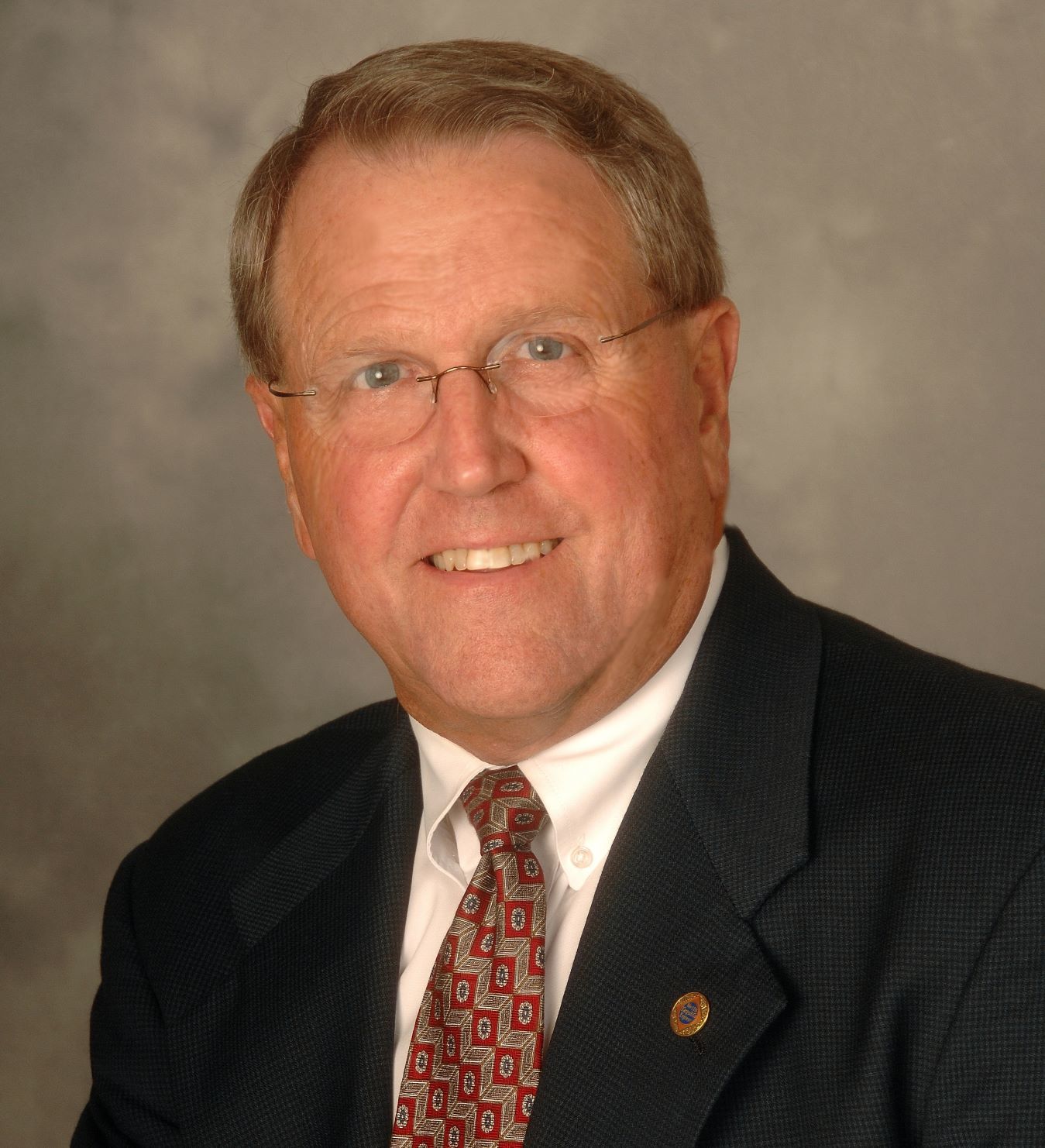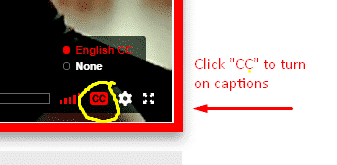Why they're a Crisis Leader:
I met Allen through a mutual friend. ‘If I want to interview a real crisis leader, you have to talk with Allen Owen,’ I was told.
Now, after having the pleasure of interviewing him, I completely understand.
Allen Owen served as Mayor of Missouri City, Texas when two catastrophic hurricanes came through. Not one, but two.
Unlike elected officials that left their citizens leaderless during a crisis, Mayor Owen stayed and led his citizens through to the sunny side of two disasters.
His leadership during a crisis is self-evident, and his stories about his innovative solutions are harrowing and inspiring.
#1 "What is a Crisis Leader?"
Click to read a transcript of the answer "What is a Crisis Leader?"
All right, good morning Mike, thanks for asking me for the interview. I think the first question that you posed to us was, what is your definition of a crisis leader.
And I think, first off, crisis is defined as a time when a difficult decision must be made, in a time of intense difficulty, trouble and danger.
And a crisis leader I think is one who accepts that responsibility, and is not afraid to make those tough decisions for the safety and the well-being of everyone he's responsible to and for. And it's not an easy thing to be a decision maker in difficult times, but that's what they pay us the big bucks for.
#2 "What's an example when you relied on your own Crisis Leadership?"
Click to read a transcript of the answer "What's an example when you relied on your own Crisis Leadership?"
And the second question is an example of when I've depended on my Crisis Leadership.
I look at two major events and I've been through eight major events in my years, 24 years as mayor, but during Ike, during Hurricane Ike, and during Harvey are two that I would talk about the most.
I guess during Ike, and let me just say, that Ike was all wind and no rain. Harvey was all rain and no wind.
So during Ike we lost electricity. And we were without electricity for anywhere from five to 10 days. I was without electricity in my own house for 10 days. But a gasoline station shut down. They didn't have electricity to pump gas and those few that did had long lines.
And I'm sitting in line one day getting gas for my generator and I look across the street and the Chevron station had the lights on, but they were boarded up. So I knew they had electricity. So I went back to our Emergency Operation Center and I got the telephone number of the owner of the station.
And I called the owner and I said, "You have electricity at your station?"
"Yes, sir."
I said, "Do you have gasoline in your tanks?"
"Yes, sir."
I said, " I'm gonna give you two choices. "You can open your station or I'm gonna open it for ya."
He said, "What do you mean?"
I said, "I'm gonna cut the locks off your door."
I said, "I got people waiting in line "and you've got gas in the ground. "And you've got electricity."
"I don't have anybody to run it."
I said, "I do. "I have a friend who owns C-stores. He's well capable of running your service station."
So I said, "When can you be here?"
"Well, I can be there in the mornin'."
I said, "Fine." "I'll meet you in the morning."
So I met him that morning. He opened the station. My friend opened the gas pumps and we started pumping gas to people.
I had city employees who were literally pumping gas. Having fun. They were checking oil. They were doing all the fun things that you used to do at a service station.
But the main reason I had it was is that my people, they were going to and from home, needed gas to get to and from the EOC and they didn't have it either.
So I opened up that station on one side of it for city employees to come and get gas.
Now we paid for it. The pumps would take credit card, but they couldn't take cash. And it's kind of ironic that the Exxon station across the street opened up after we did and their gas was 2 cents higher than what the Chevron station was. I started a gas war. [laughter]
But, you know, people said, "How did you do that?"
I said, "Well, the governor gave me that power." You know to confiscate and to take things that are necessary. There was food. There was ice. There was a lot of stuff in that convenience store. And we had people come into the police station looking for food for kids and stuff. And I said, "Come down here." I said, "The guy doesn't want this stuff anymore. "It's gonna spoil if somebody doesn't come get it."
So we even gave the food away that was in the store. The ice that was in still in the ice machines that were there. Milk. All that kind of stuff.
And that was a decision that a lot of people, I have a Congressman that loves telling that story in Congress.
That I've got a mayor that confiscated a gas station.
But that's a decision that I felt was in the best interest of the citizens and it was a decision that the governor gives us the ability to do. And once you declare that declaration, that emergency declaration, you have that power.
During Harvey was a little bit different.
As I said, Harvey was all rain and no wind. We never lost power, but we had 18 and 20 inches of rain. So we had severe flooding.
And during that time, I had 57 state troopers and 17 National Guardsmen who came to Missouri City to start helping will patrolling the streets and doing high water rescues.
And they came unprepared to stay. And I have a City Center outside a golf course. Obviously, we weren't playing golf. And I said, "Look, guys, "you're not gonna stay in your cars. "I've got a big building over here. "I've got electricity. "I've got a kitchen in it. "It's not being used. So I housed those state troopers and those National Guardsmen for about a week while they were here. And they patrolled the streets and did the high water rescues.
But I didn't have everything I needed.
They came here not prepared to stay. So they didn't have bedding. They didn't have the essentials that were needed. Personal items.
So these big stores have what's called Knox Boxes on the outside of them. Little red box on the outside of the door has a key to the front door in it that the firemen can use to go in it.
And I had a good friend who was head of security for H-E-B (grocery store) and for Academy (sporting goods). And I called them both and I said, "Guys, when your alarm goes off in your stores, "don't be alarmed." I said, "We're going into your stores "and we're gonna take things that are necessary "for us to do these high water rescues."
We went into Academy and took kayaks, rope, waders, boots. Everything that we could find in Academy that we needed to help our firefighters and patrolmen.
We went into H-E-B, took food. We went into Walmart. We took air mattresses, sheets, personal hygiene equipment. And supplied those guys while they were here.
Again, everybody said, "Well, how did you do that?"
I said, " Well, the governor gave me the ability "to confiscate what I needed."
Now, we went back to Academy and said, "Look, here's what we took." Because to get reimbursed from FEMA we have to itemize everything that you do take.
Like I said, the gasoline we paid for. And by the way, the guy was bringing more gas. Wanted my people to pump gas. I finally said, "No, no, no, no, no. "You need to pump your own gas now."
Anyway, went to Academy and Academy I gave 'em $25,000 for the stuff. Guy said it was the best sales day he'd had in a long time.
We went to Walmart and H-E-B and they both said, "We don't want any money. "It's yours. "Take whatever you wanted and we don't want a reimburse." Again, those are decisions that, you know, those are personal decisions.
I could have sat there in both of those situations and not done anything. But as an EOC coordinator and as a person who really wants to believe in taking care of his people, I made those hard decisions.
And it's not easy to make those decisions.
Some might say, "Well, did they not want you "going in those stores?" I said, "Well, they didn't have a choice."
They knew that I had the ability to go in whether they wanted to or not. I think those are the things.
Those are probably the best two examples that I use and other people use to talk about with me is. You know, I even got accused of stealing. [laughter] Some of my critics said I was stealing. I said, "Well, you don't know what you're talking about." But I said, "I called 'em all before I went in."
Anyway, those are the two examples that I would use.
Well, when the Brazos river was flooding.
And we were flying a drone. We'd fly drones up and down these levees looking for different issues and they called me one afternoon and said, "Mayor, we have a problem.
"One of the big levees has about a 100 yard section that is sloughing." And I'm going, "Whoa."
This is major because before that levee was built, had it not been built, there were about 15,000 homes that were in risk of being flooded. And it had that levee breached, but anyway, I'm flying this and I'm trying to keep an eye on it and all of a sudden my people tell me that the FAA grounded my drone.
They didn't want the drones up flying around because of the helicopters and news people. And so, Congressman Pete Olson had been coming by the Emergency Operations Center almost on a daily basis. And I think Pete probably serves on a FAA's committee or whatever it is.
I called Pete and I said, "Pete, I have a problem."
I said, "The FAA has grounded my drone."
And I said, "We have a situation on the levee."
I said, "It's gotta sloughing away."
In about 15 minutes the guys came in and said, "Sir, the FAA has lifted the restriction. "We can fly again."
I said, "Oh, okay. "Well, I understand why."
Then it took 1500 sand bags to shore that levee up, but again, had I not had that relationship with the Congressman, and with Pete who's a personal friend, to pick up that phone and make that decision, there were 15,000 houses at risk of being totally flooded had it not happened.
Having, you know, an interesting part but, it just shows you again what Crisis Leadership has to be in tune for.
#3 "What do you know now that you wish you knew then?"
Click to read a transcript of the answer "What do you know now that you wish you knew then?"
I think that every situation is different, and every situation is a learning experience.
And I think in every situation that I dealt with, whether it was in hurricanes, whether it was flooding, whether it was a disaster, whatever it was, I think each of those situations was a learning event.
And I think it was a learning event for the staff because we're in that emergency operation center, well, doing Ike and doing Harvey both, we were there 24 hours a day for 10 to 12 days at a time, and sleeping, eating, and doing all those things.
And you have a working relationship with your staff that they depend on you, to be the leader, to be there, and so, I guess that the thing that I learned most was that you don't know all the answers.
And there's a different answer in every situation.
#4 "What advice would you give someone who wants to improve their own Crisis Leadership?"
Click to read a transcript of the answer "What advice would you give someone who wants to improve their own Crisis Leadership?"
Question number four was “what advice you give to someone who wants to improve their own crisis leadership.”
I think the most important thing that I can tell people is you need to listen to others that have been there, done that, and have the experience that you might not have.
Don't think that you have to do it by yourself.
It's something that you have to depend on others who have been through it to help you do it.
As I said before, a lot of these elected officials, especially that have term limits, they're turning over quite often. They may have never been through a crisis in their four years or their eight years, even two years. There are two year terms for Mayors and Council. They may have never even experienced that.
My advice to them is you need to rely on those that have been there.
Don't be afraid to pick up the phone. Don't be embarrassed to say, "I don't know the answer to this. You have been there and you help me.”
I think the biggest mistake that elected officials make is that they think they know it all. They don't.
As I said, I spent 39 years and every single day was a different learning experience for me and I told people that I don't know all the answers.
I know a lot of them, but I don't know them all and I'm not afraid to pick up the phone and call. I was very fortunate that I had some very good city managers in my tenure as mayor and councilperson. Guys who had been through crisis before. Guys who had been through situations that I could sit down with and say, “what do you think we need to do?” I'm making that decision by myself.
Again, I go back to say, for those people that want advice, don't make those decisions by yourself unless you're sure they're right.
Because if you make it by yourself and they're wrong, you're gonna pay the consequences for it. Take some people with you. If it's a wrong decision, say, we made that decision, not I made that decision.
I think my best advice to those that haven't improved that are trying to improve their leadership skills, is depend on those that have been there.
#5 "Who is a Crisis Leader that influenced your career?"
Click to read a transcript of the answer "Who is a crisis leader that influenced your career?"
I think the last question is do you have people that have influenced you over the years in making that decision?
And I have to go back to what I said earlier. I've been fortunate to have city managers that I could sit down with and depend on to run things by.
And I won't single out one of them, because I think they all had a different thing to offer me.
My experience with all of them has been different, but I don't think there's one particular person that's had a major influence on me other than maybe my parents, upbringing, to make the right decisions for people.
Key Takeaways:
- Accept the responsibility to make the tough decisions
- Depend on those that have been there
- Build relationships and rely on your alliances
- Know the boundaries of your legal rights
- Relentlessly serve the people you are responsible for
- Every disaster is a learning event
- One person does not know all of the answers … ask for help
- Don’t make decisions by yourself unless you know you’re right
- Surround yourself with good and capable people



